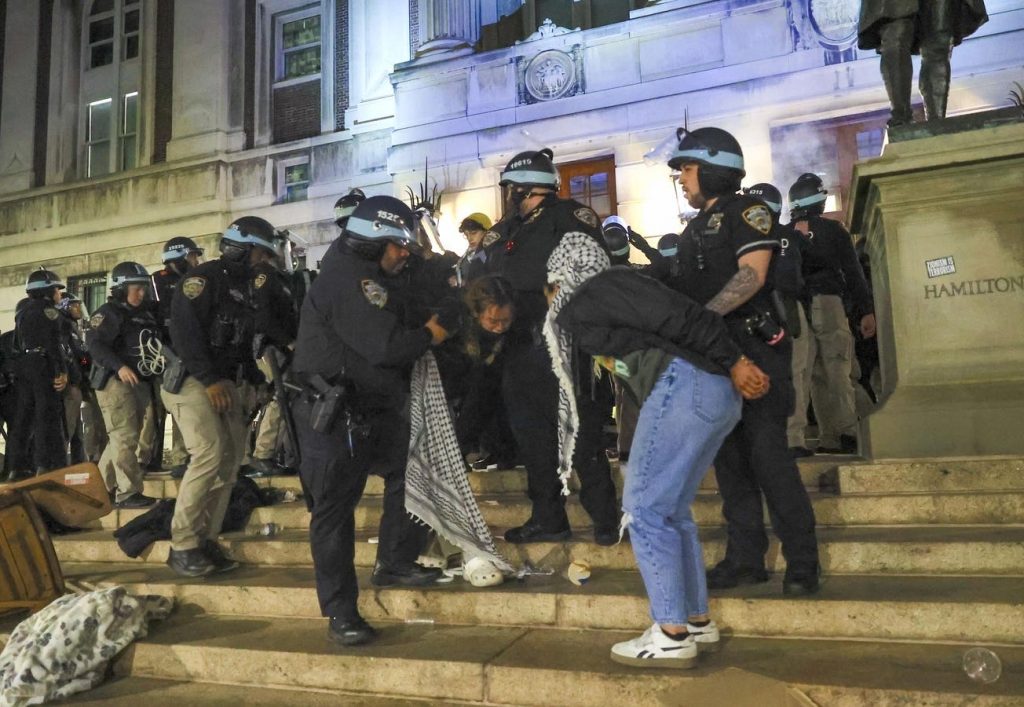Following the arrest of nearly 300 protesters at Columbia University and City University of New York on Tuesday, officials are considering charging some protesters who occupied a Columbia building with felony offenses. The 40 to 50 protesters arrested inside Columbia’s Hamilton Hall could face the most severe charges including burglary, trespassing, and criminal mischief. New York City Mayor Eric Adams listed possible offenses, but the final charging decisions will be made by prosecutors at the Manhattan District Attorney’s office. Burglary is classified as a class D felony with a prison sentence of up to seven years if found guilty according to New York sentencing guidelines.
On the other hand, third-degree trespassing is considered a class B misdemeanor with potential fines, community service, and probation, while criminal mischief is a misdemeanor if the damages are under $250, but can escalate to felony charges with more serious consequences if the damages exceed certain thresholds. However, judges can choose to sentence first-time offenders or youthful offenders to probation without jail time. Protesters arrested outdoors at Columbia may face lesser misdemeanor offenses like trespassing and disorderly conduct.
The Manhattan District Attorney’s office has not yet commented on whether it will proceed with prosecuting protesters at either college. New York City Mayor Eric Adams stated that police were still working to determine how many of the arrested protesters were students, but claimed that the movement to occupy Hamilton Hall was led by individuals not affiliated with the university. Many student protesters are also facing academic discipline at Columbia, with some being suspended from all academic and recreational spaces except their dorm rooms, while seniors may be ineligible to graduate. Students who took part in the occupation of Hamilton Hall could face expulsion.
Columbia University’s student protests began on April 17 in response to Israel’s war in Gaza, with protesters demanding divestment from companies doing business with Israel. The university cracked down on the Gaza Solidarity Encampment, leading to arrests, but protesters quickly regrouped and expanded their protest. Columbia President Minouche Shafik called in the NYPD, but after weeks of negotiations, protesters were given a deadline to dismantle the encampment. A smaller group, deemed “autonomous” by Columbia University Apartheid Divest, broke into Hamilton Hall and set up barricades, leading to further arrests and police intervention. The situation remains tense as the university plans to request NYPD presence on campus until after the commencement ceremony.
Student protests have spread to other college campuses across the country, with solidarity encampments popping up in response to Israel’s actions in Gaza. Columbia University’s handling of the protests has drawn criticism from some community members, with the use of police force being seen as counterproductive. The future of the protesters involved in the occupation of Hamilton Hall remains uncertain, as the legal process unfolds and the university administration takes disciplinary action.


